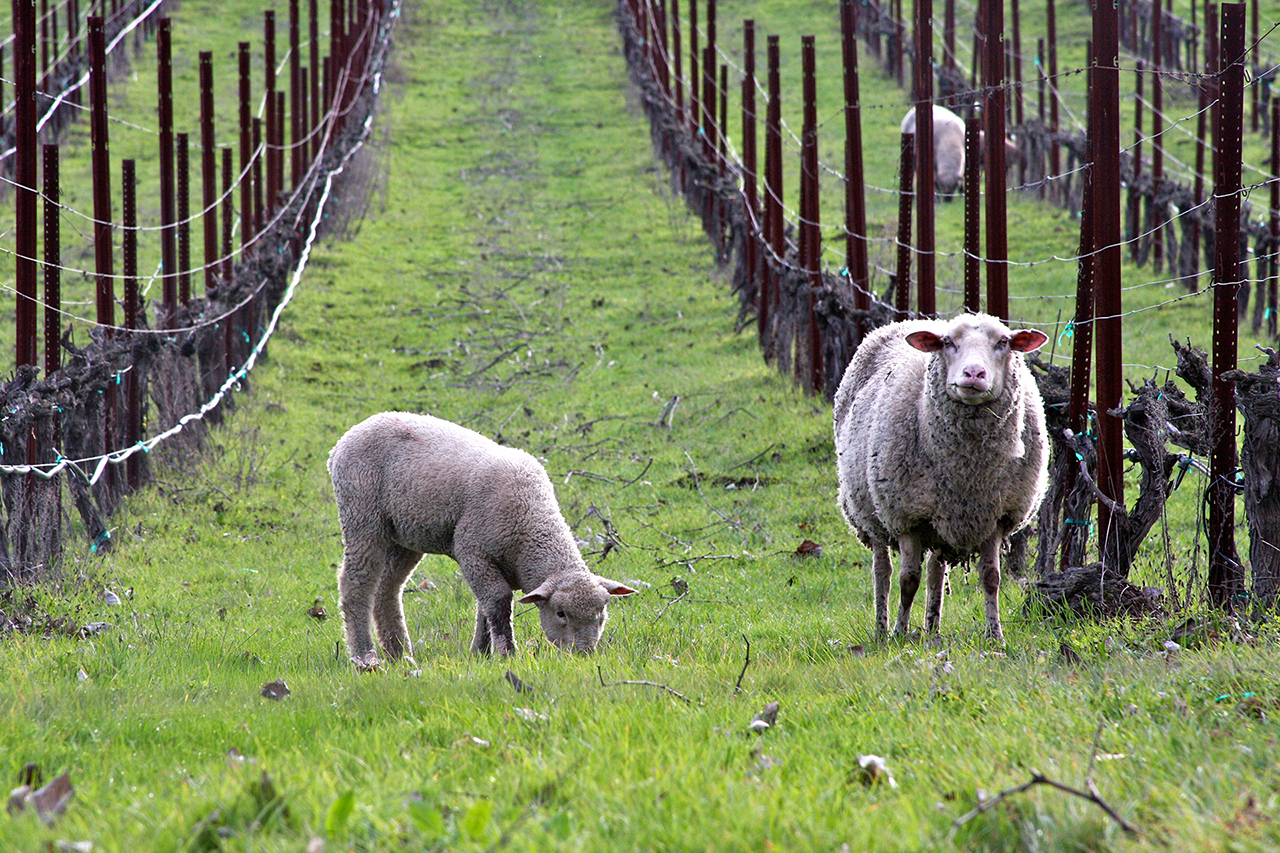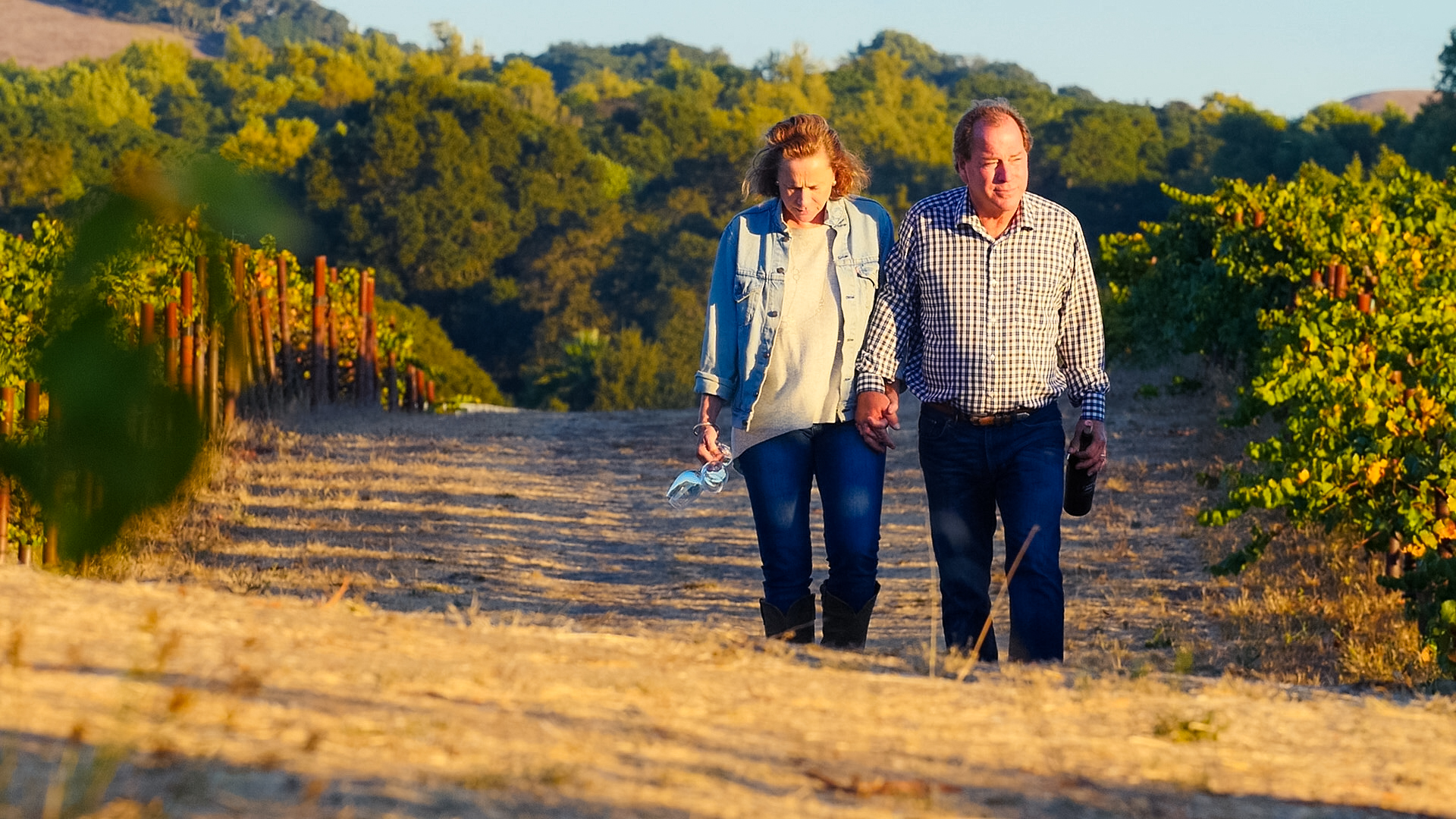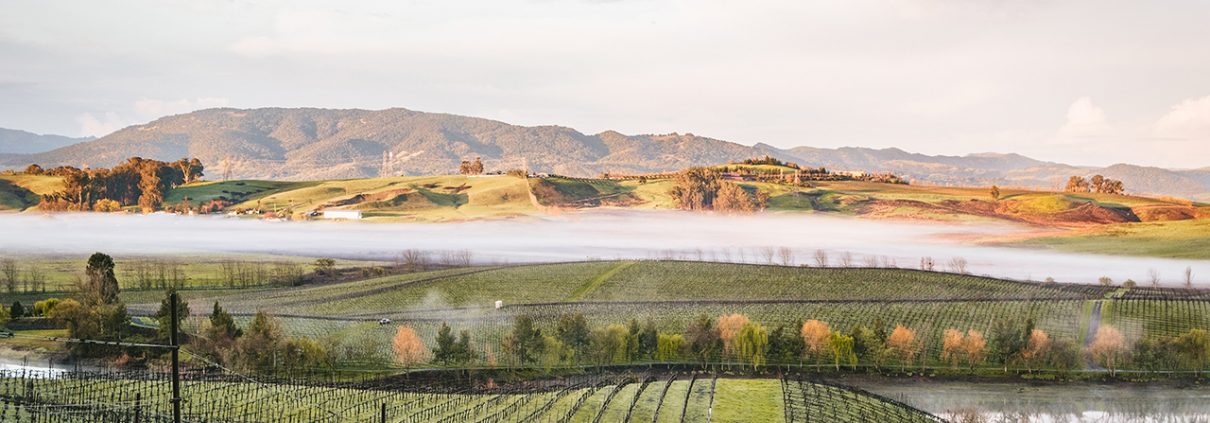酒莊巡禮:Cline Family Cellars克萊恩家族酒莊Introduction to Cline Family Cellars
酒莊背景
弗雷德(Fred)和南希·克萊恩(Nancy Cline)於1982年在加利福尼亞州奧克利創立了克萊恩家族酒莊,並使用穆維爾德(Mourvèdre),仙粉黛(Jinfandel)和卡里尼亞娜(Carignane)的原始種,其中一些葡萄樹甚至可追溯到1880年代。 1989年,為了擴大自己的生意,Fred和Nancy Cline在Carneros購置了一個350英畝的馬場,並將酒廠遷至索諾瑪縣。他們選擇的地點以豐富悠久的歷史,以及從未種植過葡萄樹的美麗起伏的丘陵吸引了他們。他們不斷成長的家庭終於有足夠的空間,如今有七個有才華,獨立自主和創造力的孩子。弗雷德·克萊恩(Fred Cline)是最早在加利福尼亞種植法國羅納(Rhône)葡萄品種的葡萄酒商之一,也是最早的“羅納別動隊(Rhone Rangers)”之一。 Cline的外祖父Valeriano Jacuzzi是發明Jacuzzi漩渦浴的7個Jacuzzi兄弟之一。
綠色產線認證
克萊恩酒莊在葡萄園和釀酒廠中均獲得“加利福尼亞可持續發展認證”以及“索諾瑪縣可持續發展認證”。它安裝了34,625平方英尺的太陽能電池板後,成為加利福尼亞第二大完全依靠太陽能供電的釀酒廠。克萊恩(Cline)稱他的耕作方式為“綠色產線認證”,因為他使用天然的農作物來滋養土壤,使用綿羊除掉葡萄園中的雜草,並使用堆肥茶代替化肥來替代肥料。
弗雷德和鮑比(Fred and Bobby)開發的綠繩農耕方法是一種促進和增強生物多樣性,生物循環和土壤生物活動的系統。這些方法最大程度地減少了來自空氣,土壤和水的污染,並優化了土壤,植物,動物,以及人的健康和生產力。我們盡一切努力減少水土流失和其他有害的生態足跡。我們的自我滋養系統僅需最少的人工干預,便可以生產出優質的農作物。

生態循環耕種
借助蠕蟲進一步消化一些較粗的堆肥,然後在強制的有氧茶釀造機中進行生物增殖。這種“堆肥茶”通過滴灌系統引入葡萄園,從而將廣效的奇妙物質直接應用於我們的土壤。
將火山岩磨碎,然後將粉碎的煤渣撒到土壤上。這些煤渣具有廣泛的礦物學特徵,為我們的葡萄園提供了一系列複雜的營養物質和微量礦物質。採取了這些額外的步驟來確保葡萄藤具有所有必要的成分,以增強克萊恩葡萄酒的性格。
為了代替了有害的農藥,貓頭鷹和猛禽棲息地位於葡萄園中。晚上的貓頭鷹和白天的老鷹是地鼠和老鼠的捕食者。猛禽幫助維持生態控制。已經創造了一個棲息地,讓有益的昆蟲也可以這樣做。覆蓋作物的房子蜘蛛以蟎蟲和葉蟬為食。
2005年,克萊恩(Cline)是首批完全利用太陽能的釀酒廠之一。在2018年,Cline用最新技術升級了原始陣列,旨在抵消我們釀酒廠100%的用電量。每年生產586,000 kWh,我們的目標是實現能源獨立。我們對太陽能的承諾還每年節省空氣436公噸的二氧化碳,相當於每年減少超過一百萬英里的行駛。
克萊恩家庭酒莊致力於可持續發展,克萊恩酒莊透過農業和葡萄酒生產過程體現了這種奉獻精神。

Cline Family Cellars Background
Fred and Nancy Cline started Cline Family Cellars in 1982 in Oakley, California, making his first vintages from original plantings of Mourvèdre, Zinfandel, and Carignane, some of which dated back to the 1880s. In 1989, to expand their small business, Fred and Nancy Cline purchased a lovely 350-acre horse farm in Carneros and moved the winery to Sonoma County. The location they selected enticed them with a rich, historical past and beautiful rolling hills that had never been planted to grapevines. There was ample space for their growing family, which today includes seven talented, independent and creative children. Fred Cline was one of the first vintners to plant French Rhône varietals in California, and is one of the original “Rhone Rangers”. Cline’s maternal grandfather, Valeriano Jacuzzi, is one of the 7 Jacuzzi brothers, who invented the Jacuzzi whirlpool bath.
Cline Cellars is “Certified California Sustainable” as well as “Sonoma County Certified Sustainable” in the vineyard and in the winery. It became the second largest winery in California that is completely solar-powered, when it installed 34,625 square feet of solar panels. Cline calls his farming practices “Green String certified”, for his use of natural cover crops to nourish soils, practice of using sheep to eliminate weeds in the vineyards, and use of compost teas for fertilizer instead of petroleum-based equivalents.
The Green String farming method developed by Fred and Bobby is a system that promotes and enhances biodiversity, biological cycles and soil biological activity. These methods minimize pollution from the air, soil, and water, and optimize the health and productivity of soil, plants, animals and people. We make every effort to reduce soil erosion, and other harmful ecological footprints. Our self-nourishing system of minimal human intervention yields excellent quality crops.
Instead of herbicides, 1500 sheep and 500 goats roam our vineyards, tasked with removing invasive weeds. In spring, they munch on new growth between the vine rows. During summer months, sheep clear the weeds from the vineyard floor while chomping on vine leaves, allowing more sunlight to stream into the canopy and ripen the grapes.
Cover crops feed the soil; a wide mix of plant types are chosen specifically to produce soil-enhancing organic material. Cover crops are folded back into the soil while providing nutrition to our wooly weeders. These practices stimulate a living soil, a rich system where our vines can form deep roots. We compost and reuse all digestible organic waste and materials from our winery including: 3000 tons of grape pomace per year, prunings from our trees and vines, plus chipped materials from the landscape. We turn this “waste stream” into biological stimulant and food for our soils.
Some rougher compost is further digested with the aid of worms, then biologically proliferated in a forced aerobic tea brewer. This “compost tea” is introduced to vineyards through the drip irrigation system, thereby applying the broad-spectrum indigenous matter directly to our soil.
Volcanic rock is ground, then the crushed cinder is spread onto the soil. Having a wide spectrum of mineralogy, these cinders provide our vineyards with a complex array of nutrients and trace minerals. These extra steps are taken to make sure the vines have all the necessary components to build fullness of character in Cline wine.



